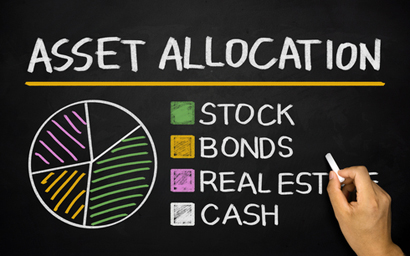In October last year, Funds Europe held a virtual roundtable for our annual Global Industry report. One of the key points of discussion was how asset allocations have changed due to the impact of the Covid-19 pandemic and its financial aftermath.
Julian Ide, head of Emea distribution, Franklin Templeton – The clearest trend we see is an increasing demand for income-generating assets in particular. People are unclear about markets, but what they are looking for is solutions increasingly. Income is one of these, whether it’s fixed income or income-generating equities, particularly fixed income in EMEA, but also asset classes like convertible securities. Social infrastructure and alternatives have also been a key area of development. We see a lot of demand, and we’re raising quite a lot of money to the extent that within our business, we’re probably at record levels of assets in the alternatives space.
Darren Pilbeam, head of UK retail sales, Natixis – The other area that we’ve started to see increased interest in is thematics, particularly around any strategy or idea that has again been increased by the pandemic, whether that be digitalisation, healthcare or perhaps any AI-related activity, and that will likely continue.
On the equity front, it has been a year of two halves. At the beginning of the year, as the pandemic kicked in, regional allocations were still very prevalent, but what we’re starting to see now from our clients, particularly on the wholesale side, is they’re taking a bit more of a holistic global approach to asset allocation. It’ll be interesting to see how that one pans out.
On the tactical side of asset allocation, it’s proving to be extremely difficult for clients. Where do they start? What’s beyond the pandemic?
Pascal Duval, head of retail solutions, Amundi – As you know, we’re living in a negative rates area, and in continental Europe, it’s a wake-up call. Banks and life insurance companies can’t deliver a guaranteed return of 2%-plus as they have done for so many years, and that’s a major issue for income solutions, which are still very much needed: a unique window of opportunity for asset managers. Also, as has been said, there is a huge appetite for thematics. It’s storytelling and easy to sell.
Thirdly, in ESG we have seen more emphasis on the ‘S’ social side due to Covid. As we see more hard data coming back on the economy, inequality progressions and poverty, the social impact of Covid has become clearer.
Finally, despite all this, we are still seeing a ‘winner takes all’ behaviour, with huge appetite for five-star ranked funds, and skewed net cash flows towards five-star products.
Find the full roundtable here: London roundtable: Operating in the new normal
© 2021 funds europe





